
“C’mon Seth!”
Momentum was building behind Seth Parker and his team, Deuces by Garzon, the crowd urging them on as they fought off elimination. Parker and Co. were struggling in their quarterfinal best-of-five match, down two games to none and game three didn’t look promising.
“Lets go Seth, c’mon!”
Cheers turned to screams as every berry returned to the hive and every queen-kill wrung out cries of agony from the Parker-backed crowd. Unfortunately, an epic comeback was not in the cards. Deuces by Garzon was swept by eventual winners Blue Team, the No. 1 seed.
After the trials came a tournament tradition: shots of Jeppson’s Malört. All tourney prize money went straight to quenching the crowd and participants. This is Killer Queen (KQ), an arcade game played locally at Logan Arcade in Chicago that has built a cult-following throughout 11 U.S. cities, wrapping up its 13th city tournament.
Video games like Street Fighter, Super Smash Brothers and Marvel vs. Capcom have developed their own communities over the years. Whether someone is a casual or an elite player, these communities have their own narratives and histories complete with legends, folk heroes and villains. In a little less than two years, Killer Queen has created that. And it all started–arguably and indirectly–in Chicago.
Building the KQ community
Josh Eklow moved to Chicago in 2014. He figured a good way to make friends in a new city would be by getting involved in the one of the local fighting-game scenes. After playing KQ at Bit Bash, an alternative games festival in Chicago, he discovered that Logan Arcade had a KQ machine. Only problem was, there weren’t enough people to play.

“That was one of the main reasons we started the Facebook page,” Eklow said. “We needed a way to get people to come out so we could have full matches.”
KQ was designed by Josh DeBonis and Nikita Mikros, originally as a field game complete with foam swords, fun balls and plastic crowns, with 10 players per team.
“After two games, it has essentially become like soccer after all the running you have to do,” Eklow said. “People slow down and it’s just hard if you’re not an athletic type.”
Then came the video. KQ’s concept was put into a video game cabinet, holding two screens on opposite sides to display beautiful 2-D graphics, an homage to ‘80s and early ‘90s video games. The simplicity of the game also captures the simpler times of those eras: each player has a joystick and one button. The game-play combines Super Mario-style running and jumping with the flying techniques and skills of Joust. Each team has three ways it can win:
Military, by killing the opposing team’s queen three times.
Economic, by gathering 12 purple berries for your team first.
Snail- riding: the slow-paced snail to the corresponding colored net (a humiliating way to lose).
The start of the Facebook page in 2014, Killer Queen Mercury Squad Chicago, triggering enough people to come out for events at the Logan Square neighborhood arcade. After holding a few tournaments, League Night was scheduled for Wednesdays.
“We call it League Night but it’s not necessarily a league,” Eklow said. “We don’t have strict teams or keep tabs of who wins. We keep it open so people showing up after we start can find a team to play with. We want people, especially people who have never played before, to have a good time and continue coming out.”
Since the Original Three (scenes in Chicago, New York City and Portland), the game has spread throughout the country, thanks to an active gaming community on social media including Facebook, Reddit, and Twitch.
“It really works because of the people involved,” Eklow said. “When we come out to tournaments or teams come to Chicago, we all provide each other somewhere to stay. People are friendly and are in it for the same thing: playing KQ with new people.”
Video courtesy Logan Arcade
Last May, 20 KQ players from Chicago traveled to Kansas City, a newer yet flourishing KQ scene, for a tournament. Among them were KQ Chicago’s Facebook page co-founder Kenneth Pettigrew.
“Honestly, I didn’t see it becoming this big when we first started,” Pettigrew said. “Sometimes people talk bad about video games or don’t understand the fandom. I’ve traveled to cities across the U.S. and have met so many people because of this game.”
Eklow said the KQ community has benefited from people leaving Chicago and establishing a scene in their new cities. When he hears a new place is trying to start a KQ community, he sends them a starter kit he and the game-makers created. It’s now become an official guide to developing a KQ community and accompanies all new machines.
KQ has also invaded business offices like Kickstarter’s headquarters in New York, the site of a big tournament last summer hosted by the online company.
“I feel like the team-based aspect brings coworkers together,” said Anna Becker, who works at Iron Galaxy, which purchased a machine in December of 2015. “It makes people who otherwise probably wouldn’t talk to each other interact,” Becker said.
Legend of Screen Slayer
As KQ4 was approaching, teams were fine-tuning their strategies, while green players were looking for teams. One player had put together a team that was having problems early on. After losing two straight games via Snail (again, an embarrassing way to lose), the third time was the last straw.
KQ’s cabinet has two televisions for display, unlike other arcade cabinets, which have a sheet of glass in front of the display screen. With one punch, the frustrated player, dubbed Screen Slayer, cracked the screen, just one day before the tournament. Fortunately, the screen was replaced in time for the tournament and KQ4 carried on, with a new trophy at stake: the TV with the busted screen.

Community players of KQ refer to themselves as “queens.”
One unlucky queen had its bike stolen outside of a bar during a KQ event. As word got around, a GoFundMe page was set up and within five hours, their fellow queen had enough money to replace it.
“The community aspect is what really drives this,” Eklow said. “We don’t just see each other at the events. We socialize outside of KQ. We talk about our jobs, we make KQ-related memes–all that is what makes this great.”
If you go:
- Logan Arcade, 2410 W. Fullerton Ave. Chicago
- 872-206-2859
- info@loganarcade.com
- Must be 21 and over to enter

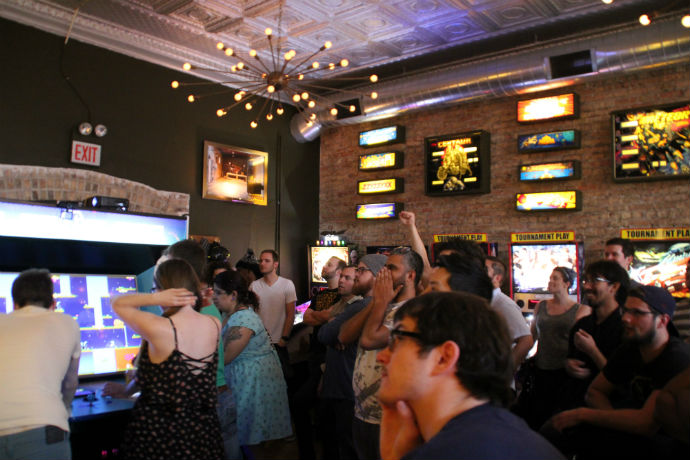



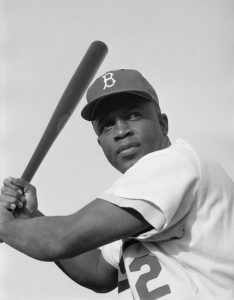


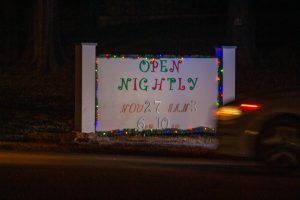
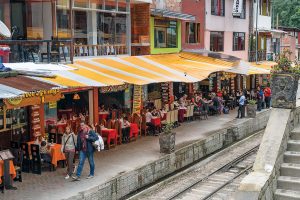


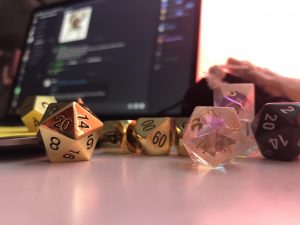

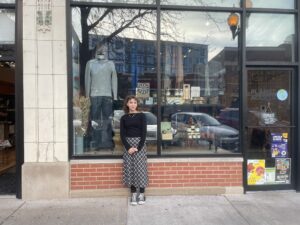

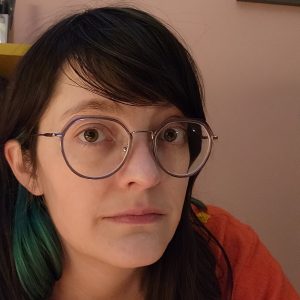
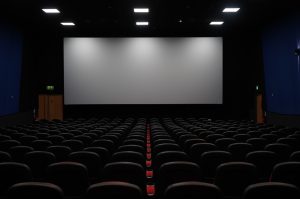
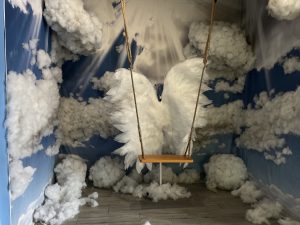
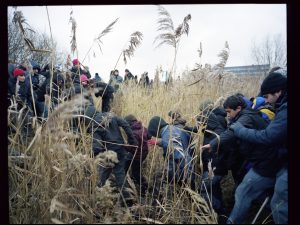


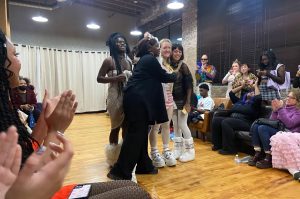


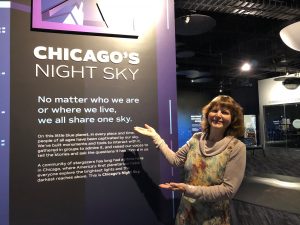
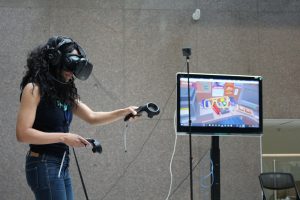
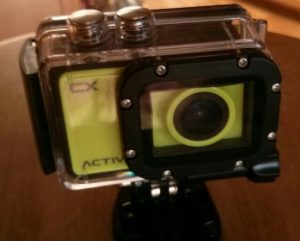
Be First to Comment